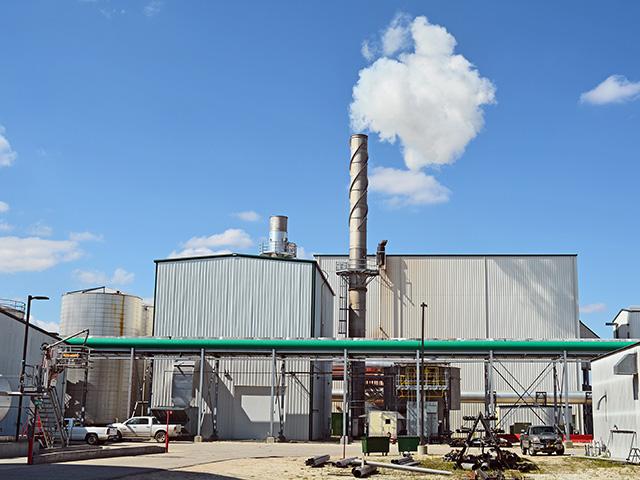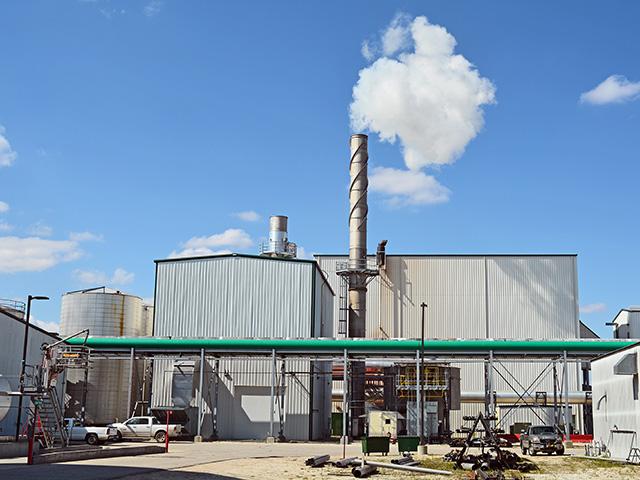Ethanol Blog
Senators: 45Z Credit Should be Reserved for Biofuels From Domestic Feedstocks
A bipartisan group of U.S. senators wants the Biden administration to ensure the 45Z Clean Fuel Production Credit doesn't go to biofuels using imported feedstocks such as used cooking oil from China or ethanol from Brazil.
U.S. Sens. Sherrod Brown, D-Ohio, and Roger Marshall, R-Kan., led a letter with 13 other senators to Treasury Secretary Janet Yellen, calling on the administration to restrict the eligibility of the forthcoming 45Z Clean Fuel Production Credit to renewable biofuels fuels made from feedstocks sourced domestically. The tax credit, which was part of the Inflation Reduction Act, was intended to make America more energy independent and spur the production of biofuels made with American-produced feedstocks -- building new markets for American farmers.
The 45Z tax credit is set to start in January though the Treasury Department has yet to release the final rules for it. The tax credit will require biofuels to have at least a carbon intensity (CI) score 50% lower than petroleum. Every point below that 50% level generates 2 cents a gallon. A 60% reduction, for instance, would generate 20 cents a gallon.
Right now, biofuel and farm groups are aggressively weighing in on how the tax credit should be applied. Groups last week filed a flurry of public comments to USDA, which had solicited information to provide to Treasury about the tax credit.
P[L1] D[0x0] M[300x250] OOP[F] ADUNIT[] T[]
See, "Biofuels Groups Tell USDA 45Z Credit Has to Provide Flexibility For Farmers," https://www.dtnpf.com/…
A group of senators and House members last week wrote a separate letter to Yellen calling on her to finalize the 45Z rules by Nov. 1. "Lack of regulatory certainty is already putting thriving businesses at risk as fuel producers are unable to make important business decisions regarding their fuel," the lawmakers wrote last week.
The latest letter from U.S. senators comes amidst a surge in imports of Chinese used cooking oil being used to produce biofuels and displacing the use of domestic feedstocks in the process. The senators warn that a poorly crafted 45Z rule will hurt American farmers, undermine the American biofuel industry's competitiveness, and undercut American energy independence.
"As Treasury works to craft 45Z guidance, we urge you to restrict the eligibility to renewable fuels made from feedstocks sourced domestically," the senators wrote. "If drafted and implemented correctly, the credit will help to support robust American energy independence -- incentivizing the production of biofuels made with domestically produced feedstocks. In order to ensure this objective, it is essential that the 45Z rule articulate clear, workable pathways for domestically produced renewable fuels derived from domestically produced feedstocks."
Senate Agriculture Committee Chair Debbie Stabenow, along with Senators Mike Braun, R-Ind., Jerry Moran, R-Kan., Todd Young, R-Ind., Richard Durbin, D-Ill., Tammy Duckworth, D-Ill., Deb Fischer, R-Neb., Pete Ricketts, R-Neb, Tammy Baldwin, D-Wis., Joni Ernst, R-Iowa, Amy Klobuchar, D-Minn., Tina Smith, D-Minn., and Eric Schmitt, R-Mo. joined Brown and Marshall in sending the letter to Secretary Yellen.
"Ohio grain farmers are growing the feedstocks necessary for clean fuel production," said Tadd Nicholson, executive director of Ohio Corn and Wheat. "The 45Z tax credit has the potential to offer a valuable incentive for the production and use of biofuels that will lower carbon emissions. Without the clear domestic feedstock requirements Senator Brown and his Senate colleagues are asking for, the benefits of this policy are at risk of being diverted from American farmers."
"Growing imports of foreign feedstock such as used cooking oil and animal fats to produce biofuels are a serious concern for U.S. soybean farmers. This new supply of feedstock directly impacts soybean oil prices and is contributing to declining margins for farmers and fuel producers. If record imports continue, foreign feedstocks could displace the oil from nearly 990,000 soybean acres in Iowa and create significant market uncertainty for the rapidly expanding soybean crush industry across Iowa and the greater Midwest. We urge the Treasury Department to ensure domestic feedstocks are prioritized in U.S. biofuels tax policy to increase domestic energy security and improve rural outcomes," said Suzanne Shirbroun, president of the Iowa Soybean Association.
Chris Clayton can be reached at Chris.Clayton@dtn.com
Follow him on social platform X @ChrisClaytonDTN
(c) Copyright 2024 DTN, LLC. All rights reserved.






Comments
To comment, please Log In or Join our Community .